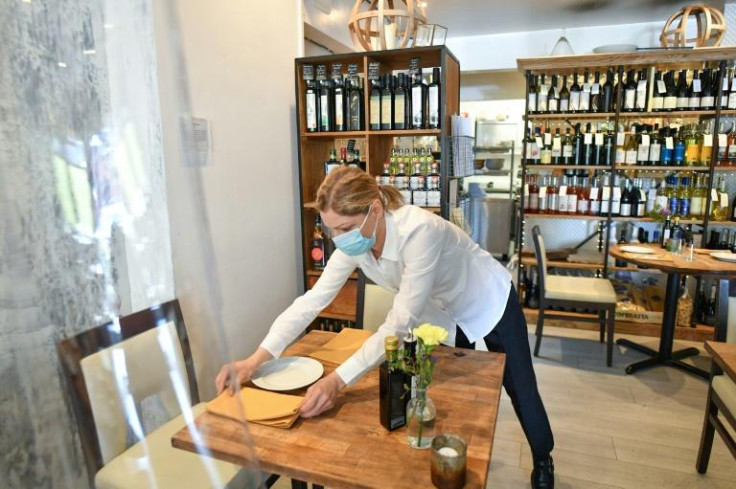UK's hospitality sector 'anxious' over significant summer staffing shortage
Another contributing factor to the staffing challenge is the tightening of immigration rules and the end of free movement between the UK and the EU.

As the summer season heats up, the hospitality sector in the United Kingdom finds itself grappling with a pressing concern: a significant shortage of staff. Amidst a surge in tourism and an easing of COVID-19 restrictions, businesses are expressing increasing anxiety over their ability to meet the demands of the summer season.
The hospitality sector, which encompasses hotels, restaurants, bars and other tourist-related services, relies heavily on a seasonal workforce to cater to the influx of visitors during the summer months.
The looming staffing crisis has sparked calls for urgent action from industry leaders and policymakers alike.
Former government minister George Eustice has since called for EU workers to be allowed into the UK to help address these post-Brexit shortages.
UK Hospitality, the representative for over 730 companies operating around 85,000 venues in a sector that employed 3.2 million people prior to COVID-19, also said staffing was in "serious crisis" - with vacancies 48 per cent higher than pre-Covid.
The North East saw the largest increase in demand for hospitality workers while Scotland saw a 61 per cent increase in job openings. London was recorded to have the highest total number of job vacancies, with 10,460 positions advertised, an increase of 26 per cent compared to pre-pandemic levels.
Scottish Hospitality Group chair Stephen Montgomery who also runs Our Place in Annan, near Lockerbie, told the BBC he was "anxious to a degree" about having to cut down his opening hours for the summer season.
"Just as we were trying to take the business from five to seven days a week, bang we lost two members of staff, both front of house. If I have to close to make sure my staff aren't burned out, I will. Why risk losing more staff for financial gain?" he said.
One of the primary reasons for the staffing crunch is the ongoing impact of the COVID-19 pandemic. The hospitality industry was hit particularly hard, with widespread closures and job losses.
Many workers in the sector sought employment elsewhere, while others chose to leave the industry altogether. With the reopening of the economy and a surge in demand, there is a shortage of skilled workers available to fill the vacancies.
Another contributing factor to the staffing challenge is the tightening of immigration rules and the end of free movement between the UK and the European Union following Brexit.
The industry heavily relied on EU workers in the past, and the new restrictions have made it more difficult to recruit staff from overseas. While the government introduced a temporary visa scheme for some sectors, including agriculture and construction, the hospitality industry was not included.
The Conservative MP for Camborne and Redruth, Mr Eustice, has since expressed the desire to address the post-Brexit staffing problem by calling for a reciprocal visa scheme for under-35s to work across the EU and Britain.
"I am very sceptical about a skills-based immigration policy because we have no shortages in those areas, but where we do have shortages is in hospitality, it's quite acute there. We could have a two-year youth mobility scheme which would have no permanent impact on immigration numbers," he told the BBC.
To address the crisis, industry representatives are urging the government to consider specific measures to support the hospitality sector. These measures include expanding the temporary visa scheme to include the industry, investing in training and development programs to upskill local talent and creating initiatives to attract workers to the sector, such as offering competitive wages and improved working conditions.
Despite the challenges, businesses within the hospitality sector are determined to adapt and overcome the staffing crisis. Many have started offering incentives, such as signing bonuses, flexible working arrangements and enhanced employee benefits, to attract and retain staff.
Additionally, some establishments have chosen to streamline operations, revise opening hours and utilise technology solutions to optimise efficiency.
© Copyright IBTimes 2025. All rights reserved.






















